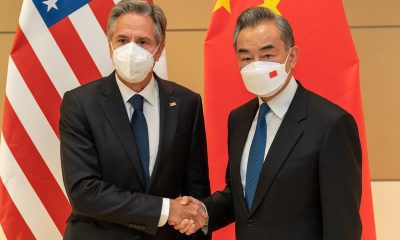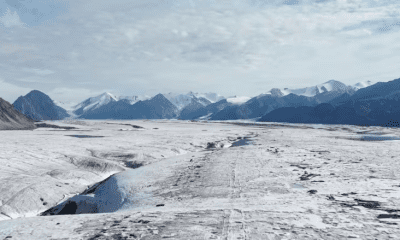Immigration
Immigration qualification based on ‘excessive demand’ must change: minister


FILE: Citizenship and Immigration Minister Ahmed Hussen said he’s committed to changing the rules currently spelled out in the country’s Immigration and Refugee Protection Act and left the door open to the possibility of repealing the controversial section altogether. (Photo By Parliament of Canada, OGL-C 2.0)
A section of Canada’s immigration law barring anyone from settling in the country if they have a condition deemed a burden on medical or social services is outdated and needs to be brought in line with Canadian values, the minister in charge said Wednesday.
Citizenship and Immigration Minister Ahmed Hussen said he’s committed to changing the rules currently spelled out in the country’s Immigration and Refugee Protection Act and left the door open to the possibility of repealing the controversial section altogether.
Section 38-1C states that a person can’t be admitted to Canada if they have a health condition that “might reasonably be expected to cause excessive demand on health or social services.”
The Standing Committee on Citizenship and Immigration is studying medical inadmissibility criteria for newcomers at the request of provincial and territorial ministers and has heard from numerous groups who argued the rules discriminate against people with disabilities and should be scrapped.
Hussen appeared before the committee Wednesday, capping three days of hearings, and said the current rules that have been in place for 40 years are in need of an overhaul.
“This provision needs to be changed. It’s simply not in line with our government’s policies with respect to moving towards an accessibility agenda, but also with … how Canadians are increasingly of the opinion that we should be more inclusive as a society,” Hussen said before the committee. “I personally think this provision is out of date in terms of looking at those two things.”
Hussen was vague on exactly how the law might be changed, saying no decisions would be made without input from the provinces and territories who bear most of the costs of health and social services.
He said, however, that repealing 38-1C was one of the options on the table.
Other options, Hussen said later Wednesday, would include exempting certain groups from the policy or increasing the financial threshold the government uses to calculate admissibility.
Currently a person is generally found inadmissible to Canada if the government determines that their health and social service costs exceed $6,655 per year.
Hussen said raising that bar would have a significant impact.
“That option alone … will eliminate 80 or 90 per cent of the people that are now captured by the policy,” Hussen said of the present setup.
A complete repeal is the route favoured by numerous groups who appeared before the committee this week. Among them were disability rights advocates who denounced the current system as “discriminatory” and “demeaning.”
The Council of Canadians with Disabilities told the committee that antiquated notions about disabled people lie at the heart of the law.
The current rules are based on the assumption that a person with a disability is an inherent burden on society regardless of any other skills or qualities they have to offer, the council said.
A more modern approach, it argued, is to consider societal barriers disabled people encounter in everything from inaccessible physical environments to non-inclusive legislation.
The council also told the committee that Section 38-1C flies in the face of the United Nations Convention on the Rights of Persons with Disabilities, which the government signed on to earlier this year.
It said the current system openly violates clauses such as Article 18, which affirms disabled people’s right to “liberty of movement, to freedom to choose their residence and to a nationality, on an equal basis with others.”
Council First Vice-Chair John Rae has said he hoped Section 38-1C of the Act will ultimately be scrapped and called on the committee to ensure disabled groups have a say in any new law created to take its place.
Hussen said the government remains focused on protecting health, social and education services, but emphasized the need to be more welcoming towards disabled immigrants.
“Our government wants to ensure that the implementation of this policy aligns with our values regarding the inclusion of persons with disabilities into Canadian society,” he said.





















